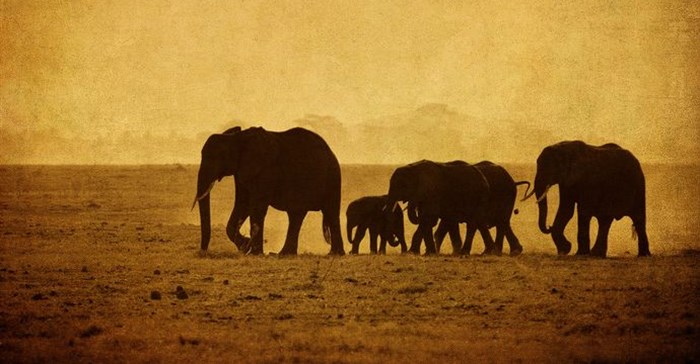NAIROBI: Kenya's wildlife authority on Monday, 16 November, vowed to destroy the east African country's vast ivory stockpile from several thousand elephants, nine times more than the largest pile torched so far.
President Uhuru Kenyatta set fire in March to a giant pile of 15 tonnes of elephant ivory, which conservationists said then was the largest ever burned in Africa.
The promised destruction of the remaining stockpile of 137 tonnes of ivory would dwarf that.
Veteran conservationist Richard Leakey, chairman of the government's Kenya Wildlife Service (KWS), said the ivory would be destroyed in the year ahead.
Kenyatta, when he torched the last pile of ivory, said the stockpile would be destroyed this year, but Leakey said that it had taken longer than expected to prepare.
"I am absolutely sure" it will be destroyed, Leakey told reporters, promising "quite a dramatic event", without giving further details.
Leakey said the average weight of the elephant's pair of tusks was around 36 kilos, meaning the stockpile represents the death of some 3,820 animals.
But other conservationists put a tusk's weight to be now far lower, meaning the stockpile could represent the deaths of even double that number.
The ivory includes tusks seized from poachers and from animals who died naturally.
Leakey, a world famous paleontologist, said he was also hopeful a film by Oscar-winning actress Angelina Jolie about his life would be filmed in Kenya, saying a script packed full of romance and violence was being toned down.
"I have a reputation for having had a fairly full life but not nearly as full as that," the 70-year old said, who refused to confirm rumours Brad Pitt was tipped to play him in the film.
"I wish I could tell you yes or no ... he may not like the new script, he was the one having a good time so maybe in the new one, he might not like it," he joked.
Ivory is sought out for jewellery and decorative objects and much of it is smuggled to China, where many increasingly wealthy shoppers are buying ivory trinkets as a sign of financial success.
Kenya's stockpile, if illegally sold on the black market at current prices, could be worth some $270m (over €251m), but conservationists say sale of ivory only serves to fuel further poaching.
Source: AFP













































